 By William J. Antholis, Director & CEO of Miller Center of Public Affairs at the University of Virginia President Biden’s decision Sunday to step aside from the 2024 presidential race has historic significance on par with Lyndon Johnson’s decision to withdraw in 1968 and even George Washington’s decision to not run in 1796. The forces behind this weekend’s political earthquake have been at work for years, of course—from the deeply divided electorate, the deep antipathy between President Biden and former President Trump, and the grinding force of age. Most importantly, Biden’s withdrawal has now pushed forward Kamala Harris as his replacement. The earthquake began with President Biden’s catastrophic debate performance on June 27. It sent shockwaves through Democratic circles, and began to divide the party over whether he was capable of winning the election. What is most striking about Biden’s fall, in retrospect, is how united the party is and has been on his performance as president. His historic legislative accomplishments rival those of Franklin Roosevelt and Lyndon Johnson in the sheer number of laws passed, if not in reshaping the goals and missions of the American government. Biden helped manage true national crises — economic, national security, and domestic crises — on par with those inherited by Washington, Roosevelt, and Johnson. That includes a global pandemic, a resulting inflation crisis, the constitutional crisis on January 6th, and Russia’s unprovoked invasion of Ukraine. On top of developing responses to all of those issues, the Biden team also passed historic bipartisan infrastructure and technology laws, as well as major climate change legislation. And yet while Biden managed to provide significant governing victories for a number of factions within the Democratic Party, he also was unable to grow his popularity beyond about 45% of the electorate. The biggest challenge was his administration’s inability to tame inflation. While economic growth and job creation levels remained high, inflation also remained stubborn for most of his four year term, making it difficult to win over independent voters, who favored Donald Trump on pocket-book concerns. Moreover, a few other governing failures — such as the tragic pullout in Afghanistan combined with his administration’s qualified support for Israel to — began to erode a sense of confidence within his own party. And beyond all that, while a broad public generally liked him and admired his values, they also worried deeply about his age, including whether he had severe mental decline. In the end, he saw that he had lost the confidence of his party to defeat Donald Trump, even if he had not lost their love and thanks. Vice President Harris has now quickly stepped in as his replacement. Her ascent is a stunning political turnaround. In her first two years as Vice President, she seemed unsure of her place in the Biden White House. She had stumbled early in efforts to address immigration. And she also seemed unable to craft a policy agenda that told a bigger story about her leadership priorities and governing style. That began to change in the run-up to the 2022 mid-term elections, when she seized on reproductive rights and the threat to democracy as her guiding issues. On top of that, the Ukraine War provided an opportunity for her to develop national security leadership skills. Democrats know that they are taking a gamble with uncertain chances of success. So far, it is showing dividends. She already has slowed down the momentum of the Trump-Vance campaign. Just four days ago, they were riding high from a successful convention that demonstrated unity in the Republican Party. They were preparing to run a campaign focused on Biden’s age, in addition to lingering concerns about the economy and international conflict. Suddenly, it is the Democratic candidate who can now question the age of her opponent. Moreover, as a former prosecutor, she provides a sharp contrast to former President Trump, who is now a convicted felon. The race is far from decided. After a very tumultuous month — which included major controversial Supreme Court rulings and an assassination attempt on President Trump — the race may be once again too-close-to-call. Moreover, Vice President Harris will have to learn on the job how to run a national campaign, including building a team she can trust and finding a compelling voice and vision. But her elevation to the head of the Democratic Party has provided a jolt of energy to the race that had been lacking for the last year. in.gr
0 Comments
Idaho Passes Law to Allow Death Penalty for Child Rapists and Bans AI Pornography of Children2/7/2024  Idaho passed two laws targeting pedophiles last week, including one that will allow the death penalty to be considered for child rapists. During the same session, another bill was passed outlawing child pornography created with artificial intelligence. The bill to allow capital punishment for child rapists, HB 515, would amend Idaho's statute that carries a life sentence for "lewd conduct with a minor" under the age of 16. Fox News reports, "If the child is under 12, if the act is 'especially heinous, atrocious or cruel, manifesting exceptional depravity,' then prosecutors would seek the death penalty." The new law is nearly identical to one signed by Governor Ron DeSantis in Florida last year. In 2008, the Supreme Court ruled that capital punishment for child rape with a surviving victim is "unconstitutional," so both state's laws will likely be challenged. The second bill, HB 465, will allow prosecutors to charge people who are creating child pornography using AI with sexual exploitation. "This technology is being used to create thousands of images of children across the world and in Idaho," Republican Rep. Dori Healey, one of the bill's cosponsors, said before the vote. The Fox report noted, "There's a current federal law prohibiting hyper-realistic sexual images of children, but it has gone untested against AI-depicted children where no child is actually present. Many are urging Congress to pass laws to address AI-generated pornographic images of children more specifically." "Meanwhile, prosecutors in all 50 states wrote to Republican and Democrat leaders in both chambers urging them to do more to curtail the rise of AI-generated child porn, the Associated Press first reported. Lawyers argued that the U.S. is 'engaged in a race against time' to protect children from the growing dangers AI could pose." (scnr)   US President Joe Biden has assured Democrat donors that he can still win November's presidential election against Donald Trump, after a poor debate performance fuelled concern about his candidacy. The president, 81, attended a series of fundraising events in New York and New Jersey on Saturday, and defended his performance in CNN's Presidential Debate. Speaking at one event, Mr Biden admitted, "I didn’t have a great night, but neither did Trump” on Thursday. "I promise you we're going to win this election," he said. Mr Biden's debate performance was marked by hard-to-follow and shaky answers - raising fresh fears among some Democrats over whether he is the right candidate to contest this high-stakes election. Speaking to the BBC's Katty Kay, former Democratic House speaker Nancy Pelosi said Mr Biden's debate performance “wasn’t great” - while his former communications director, Kate Bedingfield, called it “really disappointing”. The president said he understood the concern, but pledged to fight harder. New Jersey's Democratic governor Phil Murphy attended the fundraiser alongside Mr Biden and the First Lady - and told Mr Biden that "we are all with you 1,000%". By Sofia Ferreira Santos, BBC News  Global credit rating agency Morningstar DBRS has upgraded its estimation for Greek economic growth for 2024 to 1.6% in its analysis. Despite the favorable forecast for the current fiscal year, the Canada-based credit rating agency lowered its GDP prediction to 2.2% for 2025, according to its new global economic forecasts, while it also expects a faster decline in the unemployment rate to 10.1% this year and even further to 9.2% in 2025. DBRS’s analysis notes that growth forecasts for almost all major economies have improved over the past three months, with the median growth forecast for the U.S. in 2024 upgraded to 2.4%. The Canadian economy faces more challenges, but forecasts have also slightly improved to 1%. Major European economies show weak growth prospects, the analysis posits, but the average forecasts for the UK, Spain, Italy, France, and Germany have significantly improved since March. Forecasts for China have also improved by 0.4 percentage points to 5%, while growth forecasts for Japan have decreased by 0.3 percentage points to 0.4%. Ongoing geopolitical tensions, electoral uncertainty in key economies, and prolonged risks from commercial real estate could further deteriorate the outlook as we enter the second half of the year, DBRS reports. Source: tovima.com  Οlympiacos FC owner Evangelos Marinakis on Wednesday was again elected to the helm of Greece’s Super League, the top professional football tier in the country, edging out Panathiankos FC owner Giannis Alafouzos 7-6 in a vote by representatives of the 14 eligible clubs. One team representative cast a blank ballot. The development marks another truly excellent opportunity for professional football in Greece. After Makis Gagatsis, who’s on a final countdown towards assuming the presidency of the Hellenic Football Association (EPO), thereby ending the federation’s “captivity”, the news that the Super League’s most successful president since its inception, Evangelos Marinakis, is again assuming the league’s “reins” comes as a relief. It was Marinakis who in his first tenure as Super League president (2010-11) achieved the signing of the biggest ever broadcast contract for the league – during a period when television rights were managed centrally by the latter. It was during Marinakis’ second tenure (2022-23) that the biggest sponsorship deal for the Greek championship was signed, along with the crucial issue of the pro football cooperative’s annual revenue “take” from the Greek Super League betting pool, run by the national concessionaire, OPAP’s “Stoixima”. These were deals that funneled several millions of euros into pro clubs’ coffers, something that was certainly appreciated, as shown from today’s vote in the very tight race to elect a new Super League leader. The setting was the first time that witnessed the president of Olympiacos pitted against the president of Panathinaikos, Giannis Alafouzos, for the responsibility of the Super League’s top executive position. As such, the decision was admittedly a weighty one for the pro clubs casting a vote, as they were called upon to decide between two significant investors. What appeared to clinch this administrative “derby” was proposals, and above all, intent. Evangelos Marinakis tabled his candidacy by presenting a comprehensive plan to the other league owners. This plan includes ways to find and generate new revenue for the league; how to make the championship more attractive via a new format, which will entail playoffs for the teams finishing first through fourth in the regular season, as well as a playoff round for teams finishing fifth through eighth, with the prize here being a European play berth. The plan also features a comprehensive “road map” for cooperation and partnership with EPO and the Super League 2 (the second pro tier), as well as with UEFA and FIFA. The goal is none other than to elevate Greece’s Super League into the continent’s “Top 10”. Marinakis presented his vision for an upgraded and robust Super League, when across the table Giannis Alafouzos merely became the “vehicle” for an entire “system” that over the last few years burdened pro football in the country. After so many announcements over the years by the president of Panathinaikos regarding “reform” of the league, he ended up on Wednesday being supported by this very “system” – the “system” comprised of AEK, Aris and Lamia. According to reports, Marinakis faced off against all odds for 24 hours – even with Alafouzos and with “reformers”, and even against certain representatives of the government (!), who attempted to encroach into the Super League and attempt to influence developments in pro football in the country. He faced off against everyone, and he vanquished all. And the most important point: at the end of the process he declared himself to be the president of the entire Super League and not just those who voted for him. “We’re all together for the good of football. Football must be truly self-governing and remain apart from politicians and governments. Let us head into a better day for all of professional football,” was Marinakis’ statement, which inaugurated his third term as Super League president. Voting results Voting in favor of Evangelos Marinakis were: Olympiacos, Atromitos Athens, Asteras Tripolis, Volos, OFI Crete, PAOK Thessaloniki and Panserraikos. Voting in favor of Giannis Alafouzos were: Lamia, Panathinaikos Athens, AEK Athens, Aris Thessaloniki, Kallithea Athens and Levadiakos. The Panetolikos side cast a blank vote. in.gr  Hundreds of thousands, if not millions, of sports fans have an appointment to keep in Europe this summer, some with the classic “king of sports”, others with team and individual sports of every sort. In the months ahead, the world will be looking to the capitals of our continent’s two largest and most powerful countries, Germany and France. Berlin will be kicking off proceedings on 14 June, when (along with other cities) it hosts the final phase of the European Football Championship for a month, through to 14 July. The German capital will then pass the baton straight on to Paris, where the opening ceremony of the 33rd Olympic Games is scheduled for July 26. The closing ceremony will be held on August 11. Undoubtedly, this summer holds a good deal of spectacle and intense emotion in store, along with some fierce competition and several new records from the elite champions of our era. That, and a huge amount of revenue for those who have invested in sports, tourism and advertising. Unfortunately, the story doesn’t end there, though. Because the governments of Europe (and of the states hosting these mammoth events, in particular) and the relevant organizing bodies have at least three manor causes for concern: climate crisis, terrorism, and hooliganism. So how ready and prepared are the organizers to confront these multiple challenges? And to what extent can they do so without taking away from the events, or moving away from the principles they claim to espouse? Moreover, does everything depend on the decisions they take and the way they implement them, or are some of the possible scenarios—a prolonged and unprecedented heatwave, for example—simply beyond their capacity? Heatwaves—Meteorological predictions cause anxiety The year 2024 is likely to go down as the year in modern global history. In Europe, in particular, according to data from Copernicus, the average ground surface temperature in the December-February quarter was 1.44 degrees Celsius higher than the previous average, making this winter the second warmest in history after 2019–2020. The above data and forecasts have sounded the alarm for organizers of major events, and in particular of those that take place outdoors, like football matches and athletics. “Will athletes at the Paris Olympics be forced to endure the ordeal of a heatwave that turns the Paris region into an oven? Although it is still too early to answer this question, the recent past is enough to make organizers sweat,” a recent report in le Monde noted. The author added that “according to data from the French meteorological service Météo-France, France has experienced 22 heatwaves since 2010 (only 2014 and 2021 were heatwave-free), which is more than occurred in the 52 years between 1947 and 2000. Over the past five years alone, France experienced two heatwaves in 2019, two in 2020, three in 2022 and one in 2023. And some of them occurred during the exact period in which the Olympics will be staged this year.” Similar concerns are also prevalent in Berlin ahead of Euro 2024, even if the climatic threat to the German capital is considered less severe than that to Paris. It is no coincidence that last summer’s heatwaves forced Health Minister Karl Lauterbach to admit that the country is not prepared to cope with high temperatures. Terrorism: On the lookout for bombs and suicide-bombers “It seemed like a good idea at the time. French President Emmanuel Macron promised the opening ceremony of the Paris 2024 Olympics on the banks of the River Seine in July would be a ‘moment of beauty, art, celebration of sports and our values.’ Instead, the grand opening and accompanying circus surrounding the sporting extravaganza threatens to turn into a nightmare for France’s security apparatus.” This was the conclusion of an article published in Politico on April 24, highlighting a threat that many fear will cast a long, dark shadow over the Games: the specter of terrorism. After all, France—and Paris, in particular—has had bitter and recent first-hand experience of terrorism, starting in 2015 with the attack on the offices of the satirical magazine Charlie Hebdo and the bloody, three-day manhunt that followed, and continuing with the massacre of 130 people in the Bataclan theater, surrounding streets and the Stade de France stadium, where the French and German national teams were playing a friendly football match. And this summer, the French capital will become the beating heart of the 2024 Olympic Games. A year later, it was Berlin’s turn to experience the horror: It was 19 December 2016 when a truck was transformed into a killing machine in a central Christmas market, when its driver drove it straight into unsuspecting citizens, killing 12 and injuring over 50. With these memories still fresh, and Europe experiencing a new period of racial and religious tension, the governments of France and Germany are rushing to take steps to avoid similar scenes, especially after the recent deadly attack in Moscow, for which an ISIS offshoot claimed responsibility. In fact, Paris is seriously considering moving the Games’ opening ceremony from the banks of the Seine to the less spectacular but far safer environment of the Stade de France, or the Trocadero. Hooliganism—Keeping the “ultras” and fanatics out France may not be especially perturbed by the threat of hooliganism during the Olympics, which is not an event hooligans tend to act up at, but that is definitely not true of Germany and the Euros. The authorities admit they are worried about organized groups of extreme fans arriving en masse from countries whose national teams are playing in the final phase of Euro 2024, and determined to settle scores, both between themselves and with the police. The activities of Fenerbahçe’s hard-core fans, and the clashes between supporters of Olympiacos and Panathinaikos during the EuroLeague Final Four, have certainly set off alarm bells for the German authorities, combined with the hand-to-hand fighting between Lyon and Paris Saint-Germaine fans in neighboring France just before the Cup Final last Sunday. According to a report by the Associated Press, preventative measures are already being intensified against this backdrop. “Zero tolerance of violence is our main aim,” said one of the officers with an executive role to play in providing security for the Euros. At the same time, reports from Britain—a long-standing hooliganism black spot—indicate that the government has already issued a travel ban on 1,600 people believed to be part of violent groups. This number may well increase as the tournament gets closer. “These measures will ensure that true football fans can travel to the tournament in safety, while simultaneously preventing hooligans from committing their crimes abroad,” the minister said in a statement, noting that the German authorities are cooperating closely with their counterparts abroad. Coordinated by Aggelos Skordas Source: tovima.com 
Hezbollah leader Hassan Nasrallah threatening Cyprus
(Visegrád 24)
 Greece secured a seat on the UN Security Council for the 2025-2026 term, the Greek Foreign Affairs Ministry announced. Greece was elected on Thursday as a non-permanent member of the UN Security Council, gathering 182 votes during the 78th session of the UN General Assembly which held elections earlier today. In addition to Greece, Denmark, Panama, Somalia, and Pakistan were elected for two-year terms to non-permanent seats on the 15-member Council. The elected countries will start their two-year terms on Jan. 1 and will replace Ecuador, Japan, Malta, Mozambique, and Switzerland, whose terms end on Dec. 31. Speaking on Ant1, Greek Foreign Minister George Gerapetritis said the election strengthens Greece’s position and enables it to table issues of concern. This is the third time Greece has been elected to a UN Security Council seat. Among others, following a meeting with UN Secretary-General Antonio Guterres in New York earlier this week, Gerapetritis said Greece aspired “to uphold with vigor, seeking to bridge the North with the South, the East with the West… to establish a voice of reason, a voice of international law within the United Nations, ensuring that this voice, and that of all other states sharing a common understanding, can be heard.” The two officials also discussed issues concerning the Middle East and Ukraine, a proposal for an immediate ceasefire in the Middle East, and the Cyprus issue. Source: tovima.com  Italian travel magazine My Greek Salad, dedicated to introducing Italians to the beauty of Greece, recently posted a detailed and photographically embellished article on what it regards as the top three islands to visit in Greece this summer season. Specifically, according to the magazine, the islands of Astypalaia in the Dodecanese, Naxos in the Cyclades and Skopelos in the Sporades take the lead for this year’s go-to Greek destinations for Italian travelers. ASTYPALAIA According to the article, Astypalaia is an island which, although located in the Dodecanese, “aesthetically” resembles an island in the Cyclades. The multitude of windmills, bars and restaurants, and sandy beaches are all part of Astypalaia’s magic, while its old-fashioned look gives off a feeling of being “suspended in time”. Another selling point, the article states, is the island’s focus on sustainability, aiming at 100% sustainable mobility with vehicles being powered by solar and wind energy. The author suggests that the island is “ideal for those who love ‘the pleasure of discovery’, and are looking for a beautiful, refined island, still wild and never boring.” NAXOS Naxos, the article explains, is both rich in sandy beaches, picturesque villages and magical views. It explains that the Chora (the center of the island) houses the Old Market and hides a maze of alleys full of traditional coffee shops and little stores. The article also recommends an excursion to the Lesser Cyclades, which are just a short boat-ride away from Naxos. The magazine does warn, however, that the island is a hotspot for high winds. SKOPELOS Skopelos, the article opens, is the famous backdrop of the movie Mamma Mia!, which is a selling point on its own. It quickly goes on to describe the green landscape of the island and sense of freedom it embodies. A scooter ride can take visitors to its multitude of beaches and taverns, it continues, while renting a small boat also gives travelers the opportunity to discover isolated beaches around the island. It notes that the island is much calmer than some of its neighbors like Skiathos and offers a much more peaceful and relaxed experience. Source: tovima.com  I am deeply distressed by the fast-deteriorating conditions in Gaza as Israeli forces intensify airstrikes on Jabaliya and Beit Lahiya in northern Gaza and in parts of Central Gaza. At the same time, hundreds of thousands of Palestinians are fleeing Rafah after the Israeli Defence Forces ordered further evacuations from the southern city, leading afresh to massive displacement of an already profoundly traumatized population. I am also concerned by reports of indiscriminate rocket fire from Gaza. Since 6 May, when the IDF issued an evacuation order to Palestinians in eastern Rafah, more than 278,000 people have been displaced. This includes people with disabilities, the chronically ill, older people, the injured, pregnant women, and many others who are physically unable to move without help. The latest evacuation orders affect close to a million people in Rafah. So where should they go now? There is no safe place in Gaza! These exhausted, famished people, many of whom have been displaced many times already, have no good options. Other towns across Gaza, including Khan Younis, which is supposed to receive those who are being displaced from Rafah right now, have already been reduced to rubble, and remain under attack. These are not safe places. I have repeatedly expressed my alarm about the catastrophic impact of a possible full-scale offensive on Rafah, including the possibility of further atrocity crimes.I can see no way that the latest evacuation orders, much less a full assault, in an area with an extremely dense presence of civilians, can be reconciled with the binding requirements of international humanitarian law and with the two sets of binding provisional measures ordered by the International Court of Justice. At this desperate moment, exacerbated by acts impeding the entry of humanitarian aid in Gaza through the three crossings, there is a dire shortage of fuel, which is hindering everything – from the movement to distribution of food, operation of hospitals and emergency services, sewage treatment and telecommunications. I am also very worried about the safety of humanitarian workers in the affected areas. I reiterate. A full-scale offensive on Rafah cannot take place! All states with influence must do everything in their power to prevent it - to protect civilian lives. I call on Israel and Palestinian armed groups urgently to agree to a ceasefire, and all hostages must be released at once.  Greece’s finance ministry is expected to submit, possibly in the next few days, a draft bill envisioning the automatic detection of vehicles in the country that are not insured or have passed inspection. The draft bill, which will first be unveiled for public deliberation, also foresees stiffer fines for vehicle owners who do have not paid road fees before an end-of-the-year deadline. The new online cross-checking system aims to reduce the scourge of uninsured vehicles in the country, as well as ones that have not been inspected by authorized auto centers for road and passengers’ safety, as well as emissions. The draft bill also adapts the EU’s motor insurance directive (MID). According to reports, at least half a million vehicles in Greece are uninsured, while the number of those without inspections is unknown. The only current method of detecting such vehicles and their owners at present is police roadblocks. Source: tovima.com  Greece remained in the lowest one-third of 26 European states in terms of salaries for 2023, coming in at 20th place. According to figures released by Eurostat, the Benelux Grand Duchy of Luxembourg, one of Europe’s hubs for finance, is in first place, with an average hourly rate of 47 euros. Luxembourg also has the highest per capita income in the world. Denmark follows with 42 euros per hour, then Norway (41.7), non-EU Iceland (39.5) and Belgium (36.3). Greece’s 20th place is linked with an average hourly wage of 12.6 euros. Behind the country are Slovakia (12.5), Poland (11.9), Hungary (11), Latvia (10.7) and Romania (10.4). Last place is held by Bulgaria, where the average hourly wage is 8.4 euros. 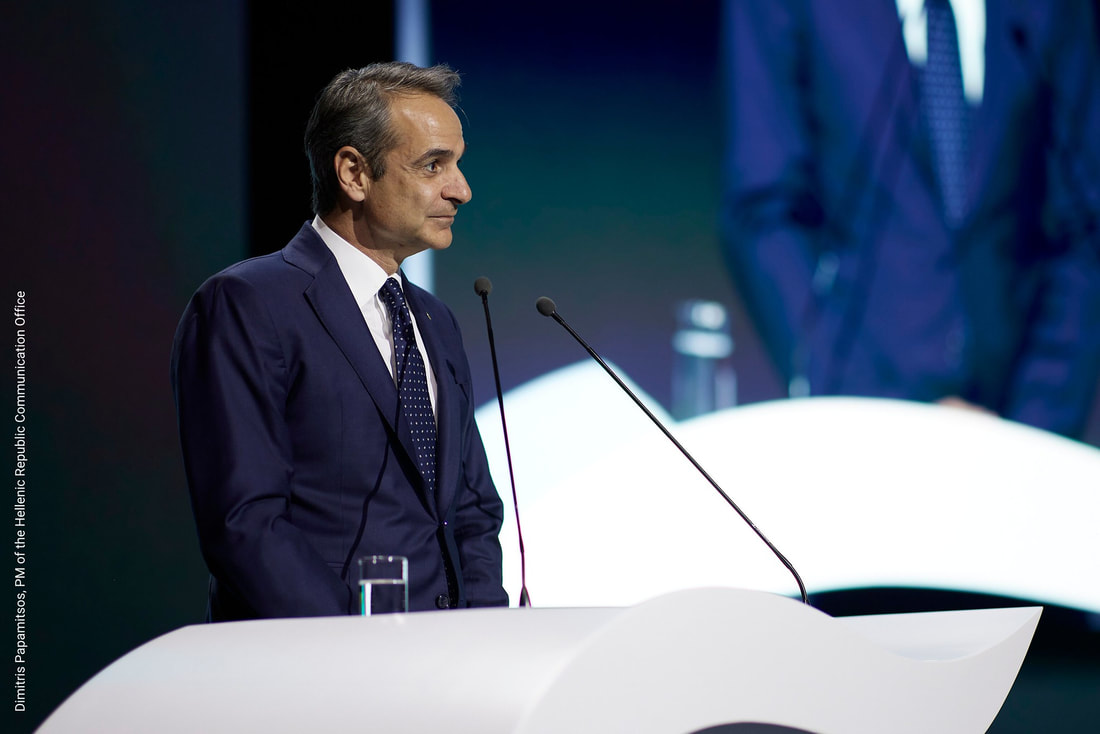 Greece took a significant step towards a more sustainable future by announcing the establishment of a €2 billion Decarbonization Fund specifically tailored for the Greek islands. Greek Prime Minister Kyriakos Mitsotakis announced the news during the 9th Our Ocean Conference held in Athens this week. The Decarbonization Fund, backed by the EU Emissions Trading System, aims to connect the Greek islands with the mainland power grid, support renewable energy and storage infrastructure initiatives including offshore wind farms and the development of multipurpose water reservoirs. Addressing the conference, a 2014 initiative by former United States special presidential envoy for climate John Kerry, Mitsotakis highlighted Greece’s commitment to accelerate the country’s transition to a ‘bluer’ economy with 21 initiatives totalling €780 million. These time-specific actions include the creation of two new national marine parks in the Ionian and Aegean seas, a ban on bottom trawling in designated areas – the first such initiative in Europe – the implementation of an advanced surveillance system utilizing drones and AI, and ambitious targets for the reduction of plastic waste in Greek waters. In this effort, Mitsotakis also referred to the urgent need to protect coastal areas, which recent legislation on beach and shoreline use aims to do. The 9th Our Ocean Conference in Athens came to a close on Wednesday with 469 new commitments worth over an estimated $11 billion. Source: tovima.com 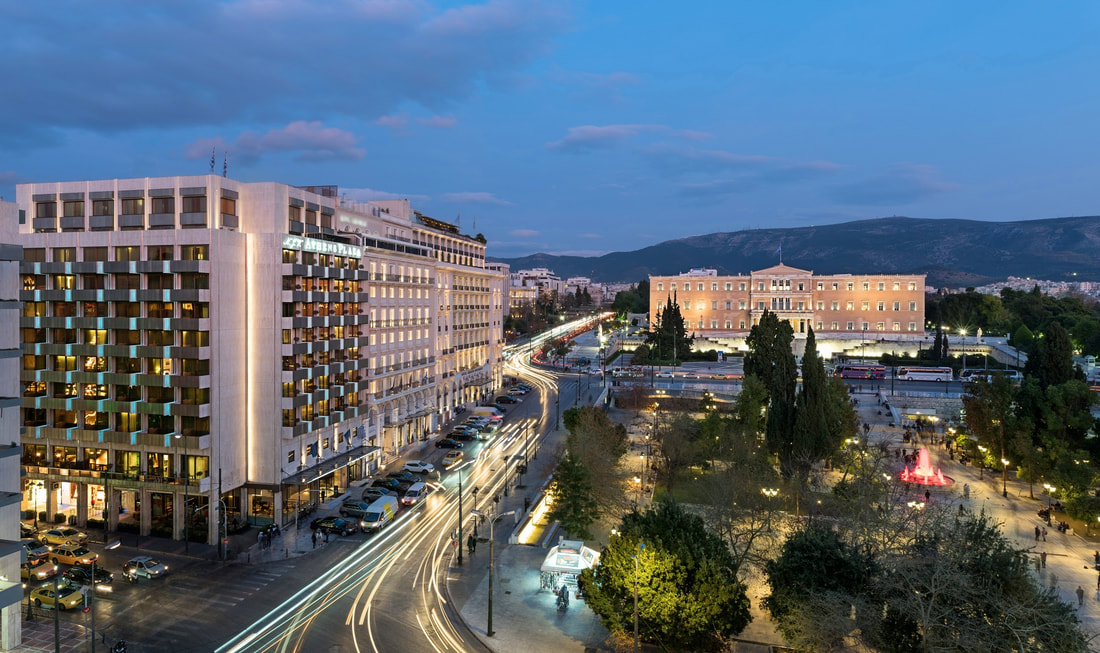 Arrival data from Athens International Airport (AIA) show that tourist flow to Greece’s capital is off to a good start. However, to the hoteliers’ concern, this increased traffic is not reflected in hotel bookings around the city. Passenger traffic at AIA during the first quarter of 2024 totaled at 5,215 million, a 16.5% increase compared to the same period last year, while the number of flights amounted to 46,334, a 12.8% increase. Nevertheless, hotel reservations in the capital do not seem to be fairing as well. Secretary-General of the Athens – Attica & Argosaronic Hotel Association Evgenios Vassilikos mentioned that this tourism surge is now distributed among the short-term rentals, which have reached 14,000 in Athens alone. Vassilikos explained that hotel occupancy rates in Athens this year is just about the same as in 2023, despite the spike in reservations during the previous days due to the Catholic Easter holiday. According to data for the first two months of 2024, hotel occupancy reached 59.3% compared to 54.4% during the same period in 2023. He also mentioned how hotel prices have remained almost the same since last year, despite increases in costs, which are getting harder to cover. According to recent data from the Association, the average room rate in Athens in February 2024 was 92.58, a 3% increase from last year. This number is significantly lower than the average rate in cities like Istanbul (114.85 euros), Madrid (138.03), Paris (279.98), Barcelona (154.39) or Rome (162.57), which also record better revenue per available room (indicatively, 68.45 euros in Istanbul, 183.39 in Paris, 93.86 in Madrid, 103.13 in Barcelona and 88.93 in Rome.) Vassilikos also touched upon the unfair competition between hotels and short-term rentals regarding climate change fees. He explained that while the specified fee for a room at a 4-star hotel is 7 euros, and 10 euros for a room in a 5-star hotel, it only amounts to 1.5 euros in short-term accommodations that can host up to 4 people and often charge higher than hotels. Nevertheless, Vassilikos remains cautiously optimistic for this year’s season, stating that “while things are good, they could be better.” Source: tovima.com 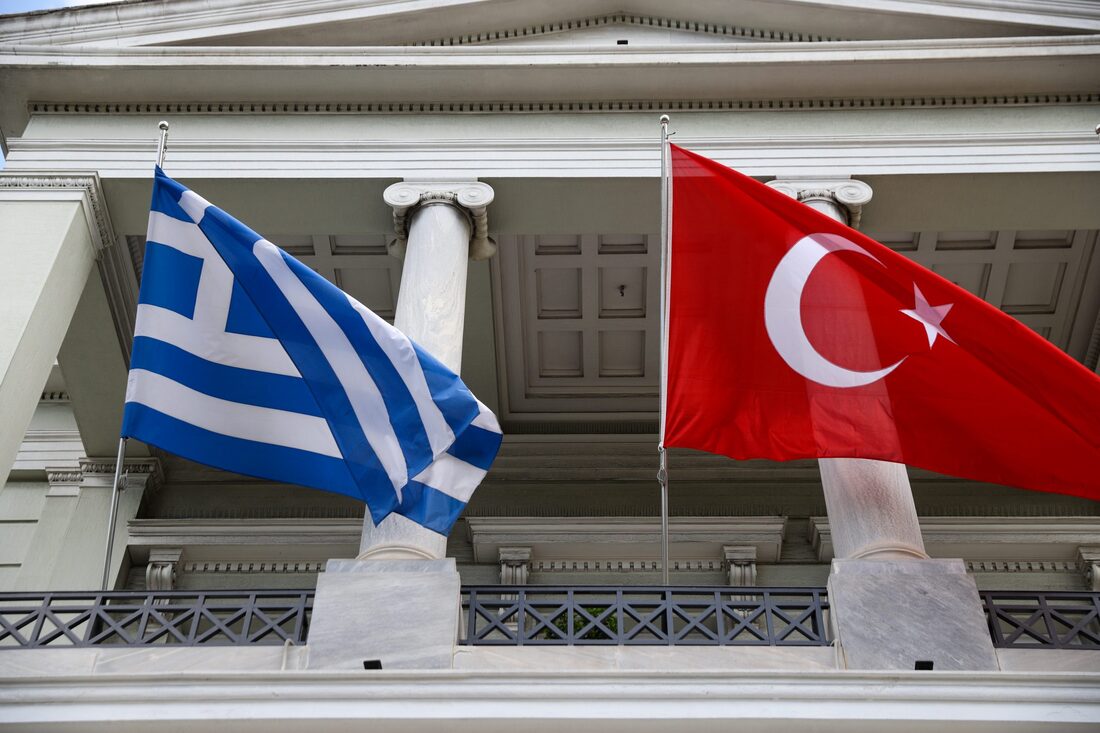 The Greek Ministry of Foreign Affairs issued a strict response, today, to the announcement from the Turkish Ministry of Foreign Affairs, which expressed concern about the upcoming creation of marine parks in the Aegean. In this statement, it’s noted that the neighboring country is “politicizing an environmental issue,” while Greece pledges to “steadfastly defend sovereignty and sovereign rights in line with foreign policy principles.” Athens’ announcements regarding the establishment of two marine parks in the Aegean yesterday, April 9, sparked Turkey’s reaction, with the neighboring country pointing the finger at Greece for “exploiting environmental issues” speaking of islands in the Aegean “whose sovereignty has not been transferred to Greece through international agreements.” In its response, the Greek ministry emphasizes that the universal challenge of environmental protection should sensitize governments and not be used to create impressions. Further adding that “The Greek government will continue to unequivocally support the sovereignty and sovereign rights of the country within the framework of foreign policy principles. Drawing on international law and, in particular, the United Nations Convention on the Law of the Sea, of which Greece is a contracting party. The practice of transactional diplomacy and the use of hybrid means for geopolitical benefits do not befit Greek foreign policy.” Source: tovima.com  Currently, renovations in the EU countries are only reducing annual energy consumption by 1%, according to the European Commission. This month, EU lawmakers passed a directive on building energy efficiency, mandating hefty renovations for property owners to curb carbon emissions and energy consumption. The development will be gradual – it will last more than a decade – but property owners who lag behind risk being burdened with assets that can no longer be sold or rented. The directive aims to compel property owners to undertake large-scale renovations to improve the environmental characteristics of buildings across Europe and ensure that the bloc meets its commitments under the Paris Agreement of Dec. 2015, to combat climate change and to accelerate and intensify the actions and investments needed for a sustainable low carbon future. Currently, renovations in the EU countries are only reducing annual energy consumption by 1%, according to the European Commission. To meet its climate requirements, the EU says property owners must increase renovation spending by 275 billion euros annually. The new European law on energy efficiency is likely to impact tens of thousands of buildings across the entire region. By 2033, property owners will need to have renovated one quarter of the largest energy-consuming buildings in the EU, what is more, by 2030, all new buildings must be emissions-free. In the EU, around 85% of buildings predating 2000 are major energy consumers, relying heavily on fossil fuels for heating and cooling. The EU targets a 60% emissions reduction in this sector by 2030. Source: tovima.com 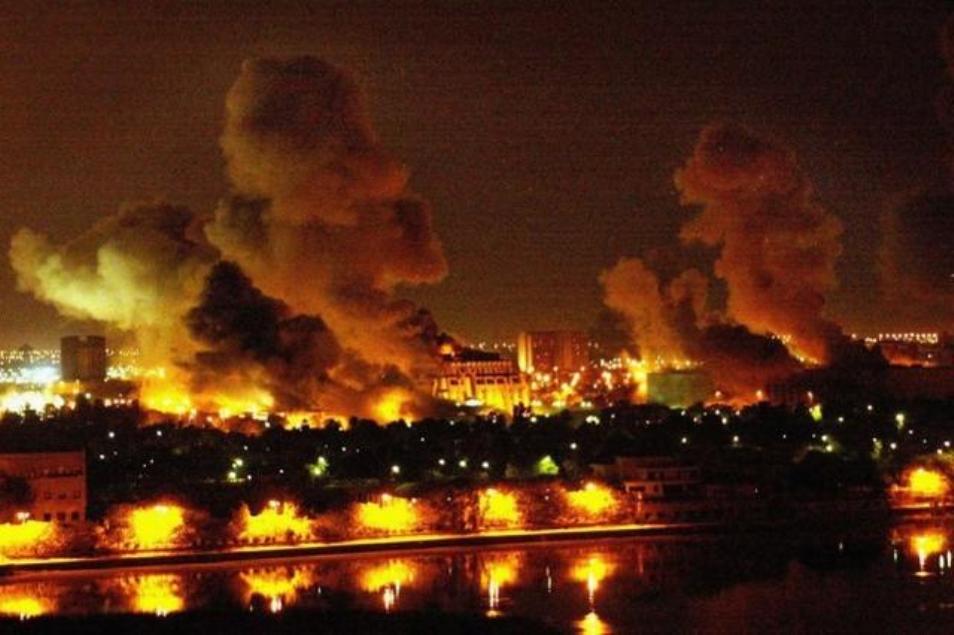 THIS weekend marks a quarter-century since a landmark act of aggression — Nato’s bombing of Yugoslavia, which began on March 24 1999. The war is often presented as a success. An easy war in the honeymoon period of Tony Blair’s premiership, before it was clear he would be associated, more than anything else, with war, through the longer, bloodier conflicts he threw Britain into in Afghanistan and Iraq. This is misleading. Nato’s air war involved three months of intensive bombing. Our bombers pulverised barracks, bridges, roads: but also schools, hospitals, homes. Thousands were killed. As the US academic Noam Chomsky noted, it was a war justified by misleading propaganda: that Yugoslav leader Slobodan Milosevic was engaged in ethnic cleansing of Kosovar Albanians. In fact ethnic clashes had claimed scores of lives in Kosovo in the preceding year, but these included massacres of Kosovar Serb civilians by the Kosovo Liberation Army as well as Serb militia attacks on Albanians, and the bombing prompted a massive escalation in such bloodshed. As so often since, a complex local conflict involving ethnic and religious differences was exploited by imperialist powers to further their own geopolitical goals — in this case, the final break-up of the once multinational socialist state of Yugoslavia — who pitched it to people back home as a battle between good and evil. That complex local conflict has not been resolved. Nato carved an independent Kosovo out of Yugoslav territory, but drawing borders on ethnic lines rarely works to everyone’s satisfaction, and Kosovo now includes separatist Serb-majority areas — whose residents rioted and attacked the garrisons Nato still maintains there last spring. Nato’s war had consequences way beyond south-east Europe. It showed hopes were in vain that the end of the cold war would bring a “peace dividend” and the diversion of arms spending into socially more useful channels. Instead, the United States used its “unipolar moment” following the fall of the Soviet Union to assert its will by force wherever it wanted. Yugoslavia was the first in the sequence that Joe Biden later dubbed the “forever wars.” Washington, with London loyally in tow, would proceed to set fire to Afghanistan, Iraq and Libya, fuel and fund conflicts in Syria and Yemen, and murder thousands of people across the world in drone attacks. International law went out the window, with the doctrine of “humanitarian intervention” allowing any state strong enough to violate the UN Charter whenever it claimed the moral right. How partial these questions become, once the law no longer counts, is shown by Russia adopting precisely the justification Nato used in Kosovo — protecting an ethnic minority — to march troops into the Donbass two years ago. Many of the conventions by which armies had been supposed to behave since the second world war were dropped. Nato openly admitted to targeting civilians, most notoriously by bombing the Radio Television of Serbia HQ, killing 16 people, arguing its role broadcasting Serbian propaganda made it a legitimate target. This formalised the treatment of journalists as enemy combatants, something which has placed journalists in warzones at heightened risk ever since. Washington’s unipolar moment has passed. But the frenetic aggression of the US and its allies, Britain above all, in those years not only killed millions, it inured our politicians to seeing war as the normal state of affairs, the constant backdrop to our political life. That explains their blasé attitude to the prolonged slaughter in Ukraine. After the drawn-out morasses of Iraq and Afghanistan, endless military action without any real prospect of achieving anything we might define as victory is nothing new. And the casual use of military force against weak countries, that cannot hit back, has bred a dangerous complacency, one that sees our political leaders openly moot war with great powers like Russia and China — war on a scale that could end life as we know it. (morningstar) 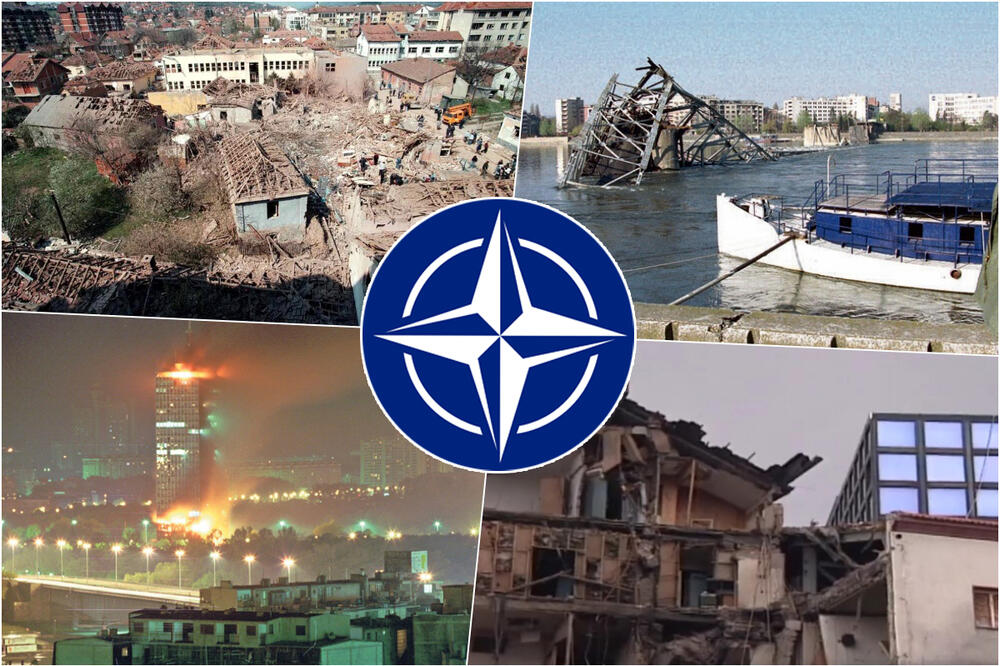 History knows many events which, by virtue of their profound impact on the international order, marked a change of eras. The NATO attack on the Federal Republic of Yugoslavia on March 24, 1999 is certainly one such event. It went beyond being a tragic milestone in the life of the Serbian people with thousands of ruined lives and desecrated national dignity, and included a devastating blow to international law and European security foundations that had been laid after World War II. The United States and the EU got finally convinced in their own impunity and moral superiority which was bad news for those who prefer to choose their own path rather than become someone’s tool in their efforts to realise their own interests. The strategic balance of power collapsed, and a drawn-out crisis of international relations ensued which continues to worsen. The US and its allies who assaulted a peaceful European country trampled on the UN Charter and the CSCE/OSCE principles, and desecrated the very notion of sovereignty. They have thus made it clear that they will stoop to anything, including radioactive contamination of vast swathes of land, to achieve global dominance. The widespread use of depleted uranium munitions by NATO has led to a multifold increase in cancer cases in that region, contaminated the environment where millions of people had lived for many years, and went down in history as a separate dark chapter on the list of NATO crimes. During the 78 days of military aggression 14,000 bombs were dropped on Yugoslavia and over 2,000 missiles were fired, including cluster and demolition shells. Under the mocking front of a “humanitarian intervention,” mostly civilian targets were hit, including residential districts, hospitals, schools, bridges, mass transit vehicles, and refugee convoys. Thousands of civilians were killed, including 89 children, whom the Western coalition cynically referred to as “collateral damage.” No one has ever been held accountable for these atrocities, and international justice turned a deaf ear to the suffering of the Serbs and let NATO atrocities go unnoticed. Not only the bombed-out buildings of the Yugoslav General Staff and Defence Ministry in central Belgrade which irritate the US officials to this day remind us of those terrible days. Serbia has many other unhealed wounds. A portion of the country’s ancestral territory, Kosovo and Metohija, has been forcibly taken away. The West has taken under its wing terrorists from the Kosovo Liberation Army, gave the province the status of a pseudo-state, and encourages the expulsion of the indigenous Serbian population. This inevitably begs the question: was the “Kosovo project” worth the sacrifice and destruction that the alliance brought upon Yugoslavia? Has the self-proclaimed “republic” added stability or prosperity to the Balkan region? There is no doubt that the United States’ concern for the rights of Kosovo Albanians is a fake claim from the get-go. It is nothing but a false pretext for the crackdown on Serbs. The West’s goal was to turn the provisional self-governing bodies in Pristina into a tool for anti-Serb ethnic cleansing and a festering trouble spot to put pressure on Belgrade. At the end of the day, the Kosovo settlement is in a deadlock, and the situation on the ground threatens to escalate into an armed conflict. This is what the Western “peacemaking” is all about. Its disastrous ramifications can now be seen in Ukraine, where a neo-Nazi regime has been nurtured on the basis of Washington and its supporters’ rejection of the principles of equality and mutual respect in international affairs, a regime that committed genocide against the Russian population and plunged the country into a military face-off. We can hear the US and the EU increasingly call on Serbs to “turn the page” and forgive NATO for the invasion that took place 25 years ago. On top of that, they lay the bulk of the blame on the Serbs for the dramatic events during the breakup of Yugoslavia, including the 1999 bombing attacks. I’d be hard pressed to find proper words to describe the extent of Western shamelessness and lack of self-criticism. The Alliance will never be able to wash off the shame of war crimes. No one believes its demagoguery about defending freedom and democracy anymore. The United States and the rest of NATO have no right whatsoever to talk about implementing an obscure new “rules-based order.” Their every effort to put together some kind of “global security architecture” is by definition malevolent and toxic, and aimed solely at perpetrating the neocolonial hegemony of the West. Russia and its partners in Belgrade will continue to oppose the attempts to distort the history of the Yugoslav crisis and to shift the emphasis to demonising Serbs and justifying the 1999 aggression. The attempts to insult the memory of the innocent victims of NATO hangmen are unacceptable. (The Ministry of Foreign Affairs of the Russian Federation)  Twenty five years ago, Zoltan Dani achieved a miraculous military feat: wielding outdated missile equipment, his army unit shot down an American F117 "stealth fighter" flying over Serbia as part of NATO's 1999 air strike assault. The David-vs-Goliath victory was one of the most surprising achievements of the Serbian side as it was battered by NATO bombs that began dropping 20 years ago on Sunday, in a bid to halt Belgrade's war with Kosovo. But in perhaps an even more remarkable twist, the retired army officer is now close friends with the American pilot whose Nighthawk he brought down. "Bingo," Dani, now 67, recalls saying when he first learned he had struck the American aircraft, which was touted as invisible to radar. ADVERTISINGThe downing of the F117 three days into the NATO assault earned Dani national hero status. It was the first and only time a F117 has been shot down in combat, leading celebratory Serbs to print shirts and posters with the slogan: "We didn't know it was invisible!" After three months of air strikes, Serbia was forced to withdraw its troops from Kosovo, where its forces had been battling ethnic Albanian separatists. While the NATO intervention is celebrated as the basis of Kosovans' liberation today, traumatic memories of the bombs remain deeply etched in Serbia's public memory. But Dani and his US counterpart, Air Force pilot Dale Zelko, managed to put their past behind them. Around a decade ago, they started exchanging emails. "It was important, among other things, to learn what kind of man he was," Dani, who is part of Serbia's Hungarian minority, told AFP from his home in eastern Skorenovac. "After two to three years we decided together that it was time to meet." - 'Message of peace' - That 2012 encounter, filmed in a documentary called 'The Second Meeting', saw Zelko travel to Dani's home where he had opened a bakery after retiring from military service. "When he arrived... I handed him an apron, he took it and we worked together," recalls Dani with a grin. In the documentary, the two men are seen rolling out pastry dough together before visiting a Serbian museum where tattered pieces of the F117 are on display. "Hey, that's my stuff," Zelko jokes, pointing at the display. They also visit the field where the American pilot landed after he ejected from his aircraft in a parachute. "As soon as I saw those missiles I thought, oh man, they got me," Zelko says standing in the field. At a screening of the film in Belgrade in 2012, Zelko addressed the room. "I am sorry for your suffering and sorrow, loss and anguish," he said, visibly shaken. "War is not between normal, average people, it is between the governments," he added. Dani says he was initially hesitant about making contact with his former war foe, but ultimately decided it would "be an opportunity to send a common message of peace and understanding". The following year he visited Zelko and his family at their home in New Hampshire. Now they still talk "once or twice a week by email", reports Dani. Near his computer is a large chunk of dark metal -- another recovered piece of the F117 -- leaning against the wall. ? AFP  Italy's prime minister, Giorgia Meloni, is seeking €100,000 (£85,374) in damages after deepfake porn videos of her were uploaded online. Ms Meloni is due to testify before a court in the Sardinian city of Sassari on 2 July. A deepfake image is one where the face of one person is digitally added to the body of another. A 40-year-old man, thought to have produced the videos, and his 73-year-old father are under investigation. Police have said they were able to find them by tracking down the mobile device that was used to post the videos. Both men are accused of defamation. Under Italian law, some defamation cases can be criminal and carry a custodial sentence. According to the indictment, the videos were posted on a US pornographic website, where they were viewed "millions of times" over the course of several months. Ms Meloni's legal team has said that, if her request for damages is successful, she will donate the €100,000 to a fund to support women who have been victims of male violence. Maria Giulia Marongiu, Ms Meloni's lawyer, said the sum was "symbolic" and the demand for compensation was meant to "send a message to women who are victims of this kind of abuse of power not to be afraid to press charges." The deepfake videos of Ms Meloni date back to before she was appointed prime minister in 2022. In recent years, deepfake porn has become commonplace on the internet. Victims have spoken about the trauma of seeing their faces digitally edited onto photos of women in sexually explicit scenes. (BBC)  If you’ve seen the new Netflix docuseries about a religious group called the Raëlians founded by Maitreya Raël (formerly Claude Vorilhon) in the 1970s, you may be wondering if Brigitte Boisselier’s claims about having created the first human clone, whom she calls “Baby Eve,” are true. Warning: Spoilers follow for Raël: The Alien Prophet. In 2002, Boisselier announced publicly that she had successfully produced the first human clone through she and Vorilhon’s company Clonaid. Calling her “Baby Eve” to protect the child’s identity, Boisselier said that Eve was cloned using the DNA of her mother, and that she was born in Israel on Dec. 26, 2002, according to CNN. She said used the same process, called somatic cell nuclear transfer, that was successfully used to clone a sheep named Dolly in 1996. Is ‘First Human Clone’ Baby Eve Real?No formal evidence that Eve was truly a genetic replica of her mother — or that she ever even existed — has ever been shown, and the validity of Boisselier’s claims remains unproven, according to StatNews, a health news website produced by Boston Globe Media. In 2004, Clonaid said it had produced 14 total human clones, StatNews added — but these claims have also never been proven due to the company’s refusal to allow independent tests on the children, or even to provide proof of their identities. Indeed, the idea of Eve’s existence — or that any human cloning was ever achieved by Clonaid — has been called an elaborate hoax, according to the docuseries. Former Raëlian Says Baby Eve Doesn’t Exist“Having been on the inside, I can tell you assuredly, it’s all fake,” former Raëlian Damien Marsic, who left the religion in 2016, says in Raël: The Alien Prophet. Marsic says that he was the only scientist actually working in the Raëlians’ lab, and that they were nowhere near the scientific capability of bringing a human clone to term through surrogacy when Boisselier made the claim that Baby Eve had been born. “This is by far the craziest and most bizarre story I have ever heard in my life, because it wasn’t true,” Miami Herald journalist Jay Weaver says in the docuseries. “And fortunately, it didn’t hurt anybody. I guess the only real victims here and I say this with tongue in cheek, are the Raëlians. They come across as complete fools.” Boisselier still maintains that Baby Eve is real, but that she prefers to maintain her privacy rather than to come forward. She remains a devout member of the Raëlians religious sect and is interviewed extensively in Netflix’s Raël: The Alien Prophet. Raël started the Raëlians in the 1970s based on the story that he had met an alien who told him that extraterrestrials were the creators of humanity. Referring to the aliens as the “Elohim,” Vorilhon grew the religious group with the goal of building a multi-million dollar embassy from which to welcome the Elohim’s arrival on earth in the year 2035. In his own interview in the docuseries, Vorilhon — who remains the leader of the Raëlians to this day — denies having ever participated in cloning, saying that Clonaid was nothing more than a shell company. “I have neither the will nor the skill set. I’m not a scientist,” Vorilhon says in Raël: The Alien Prophet. “To tell you the truth, I probably would have never even mentioned cloning if the Pope himself had not mentioned it. He was against cloning, and I thought, ‘Let’s create a cloning venture.’ Everything the Pope says, I try and counter it. To me, he is the epitome of guilt and the worst for humankind. He continued: “So I created a shell company, Clonaid, a P.O. Box in the Bahamas, just so people could say ‘Raël is launching human cloning company.’ Then Brigitte Boisselier came along and told me, ‘I’d like to do it for real.’ I said ‘Go ahead.’ And suddenly, there was a massive outcry that led us to the American congress to testify with Brigitte. We thought it was hilarious.” All four episodes of Raël: The Alien Prophet are now streaming on Netflix. Main Image: (L-R) Claude “Raël” Vorilhon and Brigitte Boisselier pictured in Raël: The Alien Prophet courtesy of Netflix (moviemaker)  Chinese officials have cancelled two Argentina friendlies that were due to take place in the Asian country after Lionel Messi did not play for Inter Miami in a match in Hong Kong. The world champions were set to face Nigeria in Hangzhou and Ivory Coast in Beijing in March. Fans in China were angered when the Argentina captain did not play for his club against a Hong Kong XI on Sunday. Messi, 36, said he could not play because of a groin injury. However, his non-appearance drew widespread criticism in China when he then featured off the bench three days later against Vissel Kobe in Japan. "Beijing does not plan, for the moment, to organise the match in which Lionel Messi was to participate," the Beijing Football Association said on Saturday. When the Hangzhou match was cancelled on Friday their sports bureau said: "Given the reasons that everyone knows, according to the competent authorities, the conditions for the event to take place are not met." Fans in Hong Kong jeered Inter Miami co-owner David Beckham and chanted for their money back after Messi did not take to the pitch. They have since been promised a 50% refund by match organisers Tatler Asia. (BBC)  The US and UK have carried out a number of strikes on Houthi bases in Yemen, after the group repeatedly attacked ships in the Red Sea. The Houthis are an Iranian-backed rebel group which considers Israel an enemy. Why are the Houthis attacking Red Sea ships? In response to the war in the Gaza Strip, the Houthis started firing drones and missiles towards Israel. Most have been intercepted. On 19 November, the Houthis hijacked a commercial ship in the Red Sea and have since attacked more than two dozen others with drones, missiles and speed boats. The Houthis say they are targeting ships which are Israeli-owned, flagged or operated, or which are heading to Israeli ports. However, many of the vessels which have been attacked have no connection with Israel. Also among those attacked wasa British-linked tanker, which the Houthis said was in response to "American-British aggression". US-led naval forces have thwarted many of the attacks. Major shipping companies have stopped using the Red Sea - through which almost 15% of global seaborne trade usually passes - and are using a much longer route around southern Africa instead. Why are the UK and US bombing Yemen? The US and UK started carrying out air strikes on Houthi targets in Yemen on 11 January. There have been several more strikes since then. President Joe Biden said they were in "direct response" to the attacks on Red Sea ships, which "jeopardised trade, and threatened freedom of navigation". UK Prime Minister Rishi Sunak said the action was "necessary and proportionate" to protect global shipping. Who are the Houthis? The Houthis are an armed political and religious group which champions Yemen's Shia Muslim minority, the Zaidis. They declare themselves to be part of the Iranian-led "axis of resistance" against Israel, the US and the wider West - along with armed groups such as Hamas and Lebanon's Hezbollah movement. Formally known as the Ansar Allah (Partisans of God), the group emerged in the 1990s and takes its name from the movement's late founder, Hussein al-Houthi. The current leader is his brother, Abdul Malik al-Houthi. In the early 2000s, the Houthis fought a series of rebellions against Yemen's long-time authoritarian president, Ali Abdullah Saleh, in an attempt to win greater autonomy for the group's homeland in the north of Yemen. During the 2011 Arab Spring, a popular uprising forced President Saleh to hand over power to his deputy, Abdrabbuh Mansour Hadi. President Hadi's government was overwhelmed with problems. The Houthis seized control of the northern province of Saada before taking the Yemini capital, Sanaa, after forming an unlikely alliance with Saleh and security forces still loyal to him. In 2015, the rebels seized large parts of western Yemen and forced Mr Hadi to flee abroad. Neighbouring Saudi Arabia feared the Houthis would take over Yemen and make it a satellite of its rival, Iran. It formed a coalition of Arab countries that intervened in the war. But years of air strikes and ground fighting have not dislodged the Houthis from most of the territory they seized. Saudi Arabia is now trying to make a peace deal with the Houthis, and a UN-brokered truce has been in effect since April 2022. The war has killed more than 160,000 people, according to the Armed Conflict Location & Event Data Project (ACLED). More than four million people have been displaced. Who backs the Houthis and how do they get their weapons? The US says Iran enabled the Houthis to target ships, and President Biden has sent a "private message" to Tehran urging it to stop. Iran has denied involvement. Saudi Arabia and the US say Iran has smuggled weapons - including drones, and cruise and ballistic missiles - to the Houthis during Yemen's civil war in violation of a UN arms embargo. It says such missiles and drones have been used in attacks on Saudi Arabia, as well as its ally, the United Arab Emirates. Iran denies supplying weapons to the Houthis and says it only supports them politically. "The Houthis could not operate at this level without Iranian arms, training and intelligence," says Dr Elisabeth Kendall, a Middle East specialist at Cambridge University. However, she adds: "It is unclear that Iran has direct command and control over the Houthis." According to the Italian Institute of International Political Studies, Iran has helped the Houthis build factories to make drones in Yemen. The Houthis have also received military advice and support from the Lebanese Islamist group Hezbollah, the US-based Combating Terrorism Center at West Point Military Academy says. How much of Yemen do the Houthis control?The Houthis control Sanaa and the north-west of Yemen, including the Red Sea coastline. Most of Yemen's population lives in these areas, and the Houthis run a de facto government which collects taxes and prints money. The internationally-recognised government of Yemen is based in the southern port of Aden. It is overseen by the eight-member Presidential Leadership Council, to which President Hadi handed power in 2022. (BBC) (photos) Houthi fighters hijacked a British-owned and Japanese-operated ship in the Red Sea on 19 November Wreckage of a drone launched from Yemen at the UAE capital, Abu Dhabi, in 2022 The Houthis are part of an "axis of resistance" against Israel |






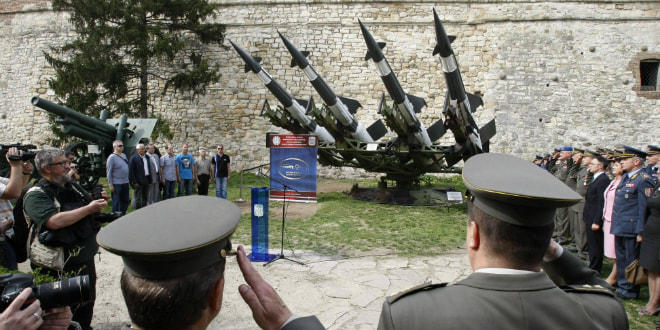

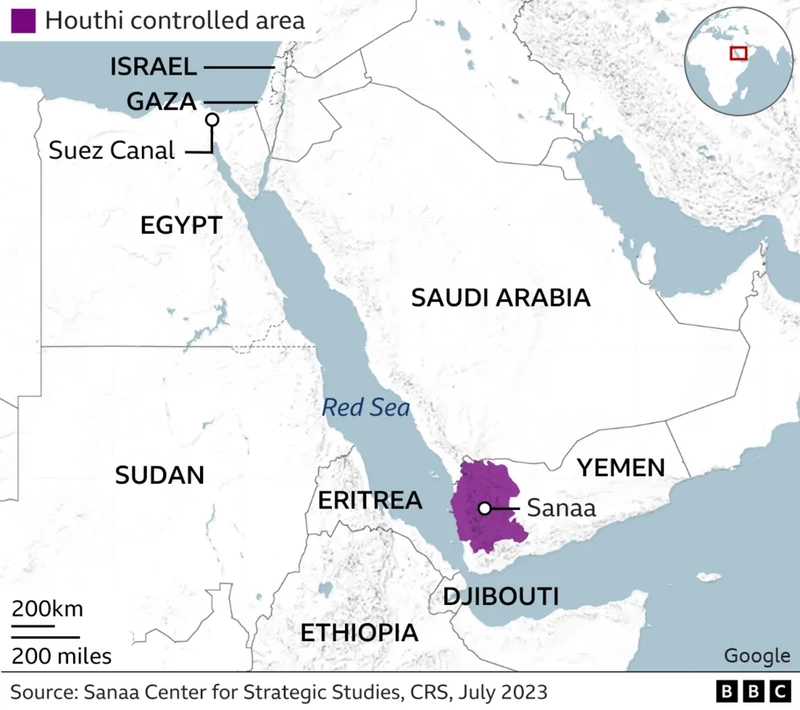
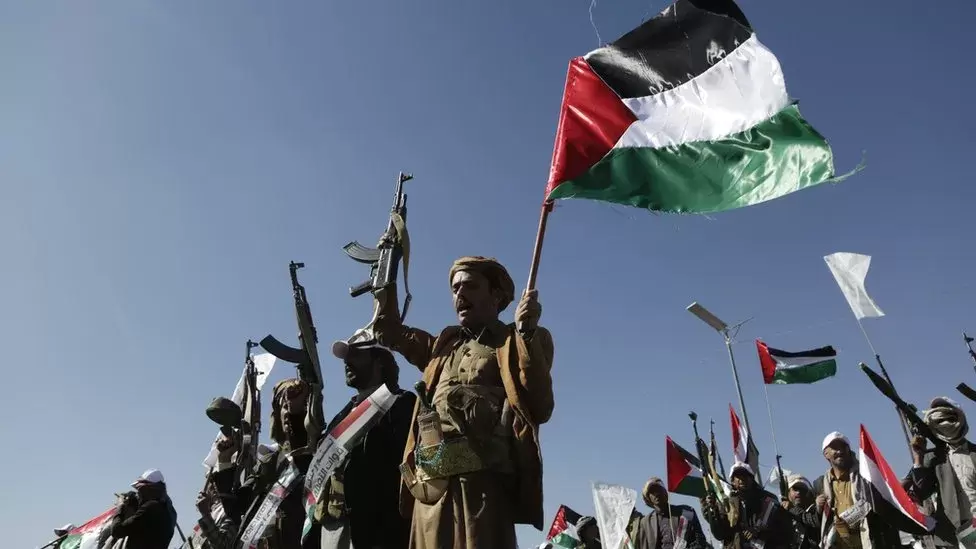
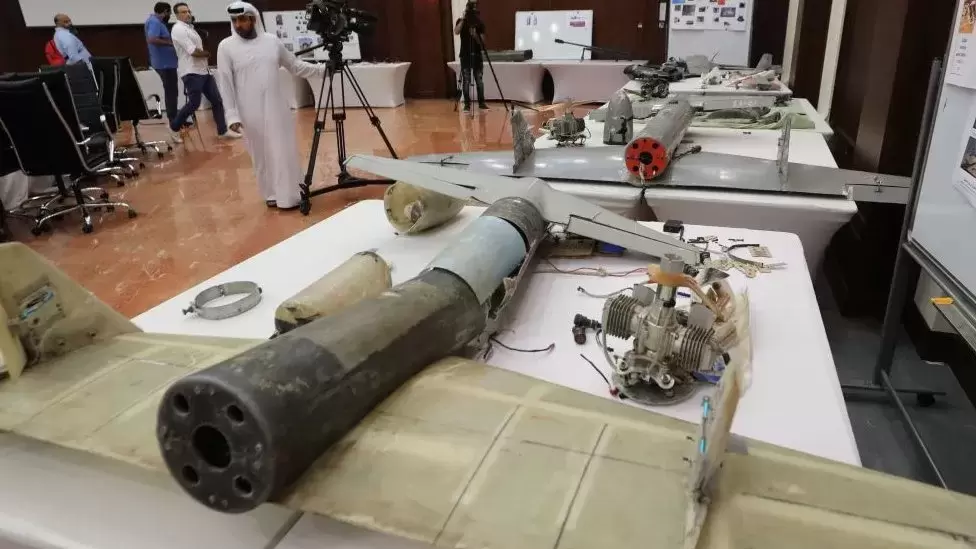
 RSS Feed
RSS Feed